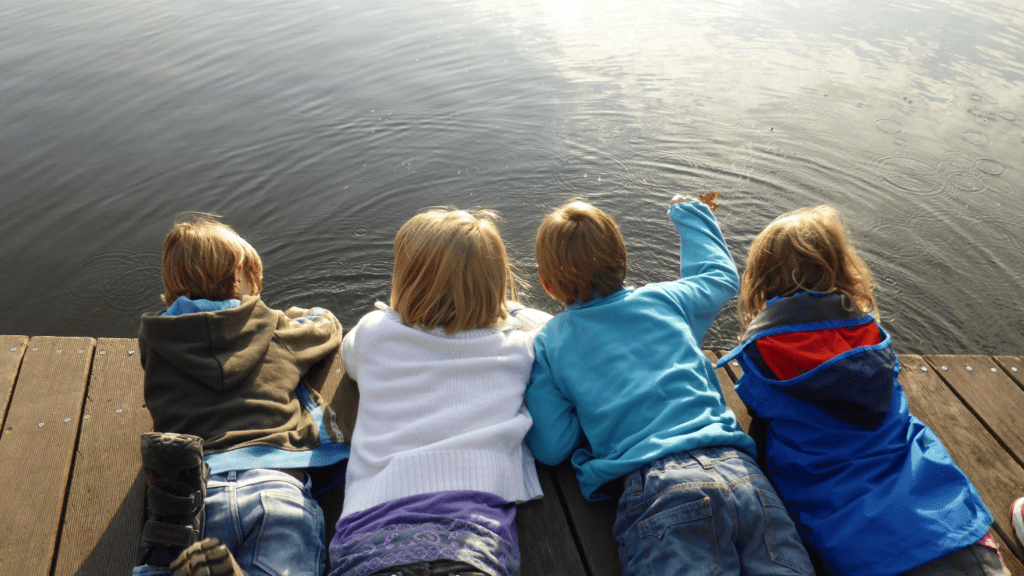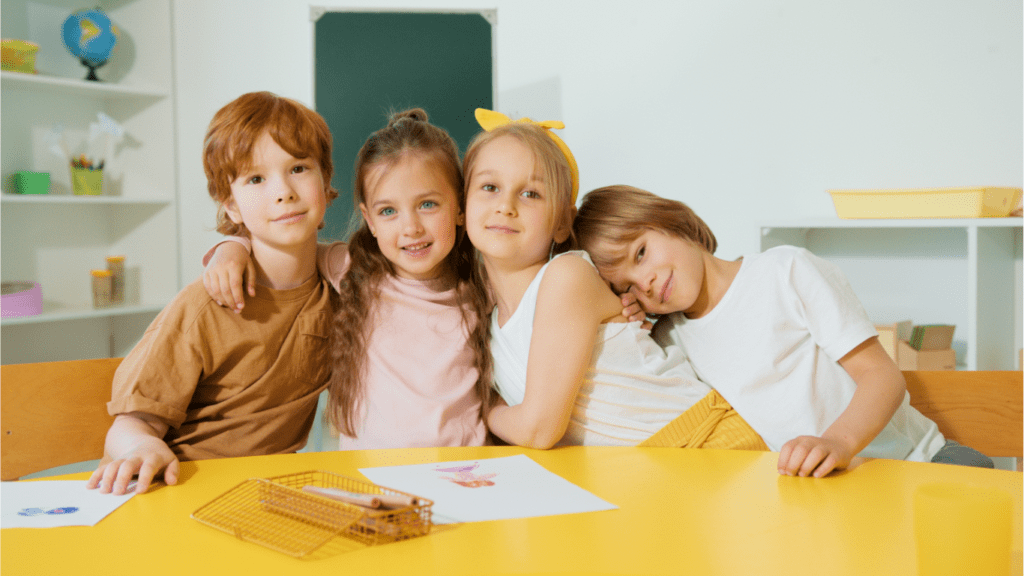Importance of Social Skills in Early Development
Children’s social skills are crucial for their overall growth. These skills affect their academic, emotional, and social outcomes.
Impact on Learning
Social skills enhance children’s learning experiences. Collaborative tasks foster peer learning. Group projects teach children cooperation, communication, and problem-solving.
In classrooms, children with strong social skills better navigate teamwork, sharing, and classroom protocols. Research from the American Educational Research Association states that children with competent social abilities perform better academically.
Impact on Emotional Health
- Social skills significantly impact children’s emotional health.
- Positive interactions build self-esteem.
- Children with good social skills manage stress better.
- Friendships provide emotional support, contributing to a sense of belonging and security.
According to the Child Mind Institute, children with strong social connections exhibit fewer behavioral problems and have greater emotional well-being.
Methods to Enhance Social Skills
Children’s social skills can be cultivated through various methods to foster meaningful friendships and overall well-being.
Role of Parents
Parents play a critical role in enhancing social skills in children.
- Encouraging children to practice sharing, turn-taking, and empathy during daily interactions boosts their social competence.
- Arranging playdates or group activities offers practical platforms for children to engage with peers.
- Positive reinforcement for displaying good social behaviors solidifies these habits.
- Modeling respectful communication and conflict resolution also demonstrates effective social skills for children to emulate.
Role of Educators
Educators significantly influence children’s social development. Creating a classroom environment that promotes collaboration through group projects encourages peer interaction and teamwork.
Integrating social skills curricula, such as role-playing and social stories, helps children learn appropriate social behaviors in a controlled setting. Teachers can facilitate peer mentoring programs to foster a sense of community and mutual support among students.
By addressing social issues promptly, educators set standards for respectful and inclusive behavior.
Strategies for Fostering Friendships in Children

Developing social skills in children helps build lasting friendships and enhances their overall well-being. Here are some strategies to support this development.
Encouraging Empathy and Listening Skills
Empathy and listening are crucial for forming meaningful connections. I teach children to understand and share others’ feelings by using real-life situations as examples. “How do you think your friend feels when they’re sad?” prompts discussions around empathy.
Listening exercises help kids pay attention to others’ words. Activities like story-telling circles, where each child recaps the previous one’s story, improve these skills. Quotes like, “Can you tell us what Jessica just shared?” encourages active participation.
Group Activities and Their Benefits
Group activities introduce children to teamwork and collaboration. I organize games like relay races or group art projects that require coordination and cooperation. For instance, building a large puzzle together teaches kids to work towards a common goal.
Playdates and small group outings offer informal settings for socializing. During these activities, children practice conversation and negotiation, essential components of friendship-building.
Structured settings like sports teams or clubs offer additional opportunities for peer interaction, establishing a sense of belonging and camaraderie.
By focusing on empathy, listening, and group activities, parents and educators can create an environment that nurtures children’s social growth and friendships.
Challenges in Promoting Social Skills
Promoting social skills in children often presents several challenges that parents and educators need to navigate. These include overcoming shyness and social anxiety, as well as dealing with bullying.
Overcoming Shyness and Social Anxiety
Many children experience shyness or social anxiety that can hinder their ability to engage with peers. Structured environments where children practice social interactions in small, controlled settings can be helpful.
For instance, pairing shy children with a single, trusted friend for activities can gradually build their confidence. Social skills groups, which provide guided opportunities to interact, also offer a safe space for anxious children to practice conversations.
By consistently creating supportive and low-pressure scenarios, we can ease the fears associated with socialization.
Dealing With Bullying
Bullying is another significant obstacle to promoting positive social interactions among children. Implementing zero-tolerance policies and promoting open communication channels where children feel safe reporting incidents are essential.
Proactive strategies include role-playing exercises that teach children how to respond to bullying and promote empathy among peers. Educating children about the impacts of bullying through stories and discussions can create a more inclusive environment.
By fostering a culture of respect and support, we can mitigate the effects of bullying and encourage healthier social dynamics.

 Hazeliin Davidsoninn, the founder of Toddler Health Roll, is an insightful article writer with a passion for children's health and well-being. Her writing reflects a deep understanding of the challenges parents face when raising toddlers, offering practical advice grounded in the latest pediatric research. With a keen eye for detail and a compassionate approach, Hazeliin's articles provide parents with the tools they need to nurture their children's physical, mental, and emotional health.
Beyond her expertise in child health, Hazeliin's writing also delves into the complexities of toddler nutrition, travel with young children, and effective parenting strategies. Her dedication to sharing valuable knowledge with her readers has made Toddler Health Roll a trusted resource for parents seeking guidance on raising happy, healthy toddlers.
Hazeliin Davidsoninn, the founder of Toddler Health Roll, is an insightful article writer with a passion for children's health and well-being. Her writing reflects a deep understanding of the challenges parents face when raising toddlers, offering practical advice grounded in the latest pediatric research. With a keen eye for detail and a compassionate approach, Hazeliin's articles provide parents with the tools they need to nurture their children's physical, mental, and emotional health.
Beyond her expertise in child health, Hazeliin's writing also delves into the complexities of toddler nutrition, travel with young children, and effective parenting strategies. Her dedication to sharing valuable knowledge with her readers has made Toddler Health Roll a trusted resource for parents seeking guidance on raising happy, healthy toddlers.
